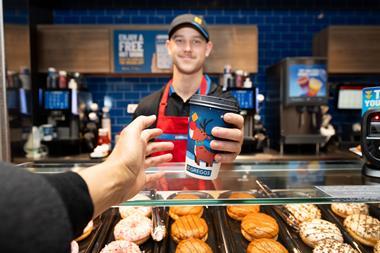Revenues and profit fell at Associated British Foods – the parent company of Kingsmill – as it was hurt by commodity deflation and currency difficulties.
Announcing its full-year results for the 52 weeks to 12 September 2015, it said group revenue – which includes its grocery, sugar and fashion businesses – fell to £12.8bn, down 1%. Adjusted operating profit for the period was also down 6% to £1.1bn.
Chairman Charles Sinclair said: “A key influence on our food businesses has been deflation in many of our major commodities, making growth in revenues difficult to achieve. The most notable examples are the substantial declines in both the EU and world sugar prices.
“We have also experienced significant movements in exchange rates, with a strengthening of sterling and the US dollar, and a weakening of the euro and emerging market currencies. These movements had a negative effect on the translation of overseas results but also, and increasingly as the year progressed, on transactional exposures.”
Ingredients
In ingredients, which includes AB Mauri, revenue was down 1% to £12.2bn, but on a constant currency the figure was actually tracking at +3%. However, adjusted profit soared in the period by 85%, up from £41m to £86m.
“Ingredients’ revenues were 3% ahead of last year at constant currency and, for the second successive year, the increase in operating profit was substantial, driven by stronger trading across all businesses and a focus on overhead reduction. As a consequence, margin was much improved,” said ABF. “AB Mauri, our bakery ingredients and yeast business delivered a second year of significant profit recovery in a market that remains very challenging.”
It also added that the integration of its recently acquired European bakery ingredients business (Gb Plange) had “broadened” its product offering. It said: “The UK business introduced a gluten-free bread and cake range of bakery ingredients, developed to meet the rising demand for such products, as well as a range of natural-based cereal fermentation products, suitable for application in all bread types, which help to deliver flavour and texture to the product.”
Bakery
ABF said that sales at Allied Bakeries had increased over its financial year, but as in previous updates in the past 12 months, it said the UK bread market continued to be “very challenging” and that lower bread prices had resulted in a “reduction in profitability”.
The Kingsmill brand was relaunched in May with new packaging across the range and it added that, following last year’s launch of sandwich thins, revenues had “continued to build” and had “benefited” from the launch of wholemeal. ABF added: “We completed our major capital investment programme during the year, introduced a variety of initiatives, which reduced waste and further streamlined production, and delivered products of a consistently high quality throughout the year.”
Bakery is part of ABF’s grocery division, which also includes Twinings, where revenues fell by 5% to £3.1bn and adjusted operating profit increased by 6% to £285m.
Sugar
Revenue and adjusted operating profit for AB Sugar were substantially lower than the previous year because of the further decline in EU sugar prices, and the underlying decline in profit was even greater given the non-repeat of last year’s restructuring charge, said ABF. It added: “In light of the structural changes in the world’s sugar industry, we remained focused on delivering significant cost reduction across all of our businesses through our ongoing performance improvement programme.
“This will reduce our cost base, but the reductions in the year could not compensate for the impact of lower prices.”
Revenue in ABF’s sugar business dropped by 13% to £1.8bn and its adjusted operating profit for the same period plummeted by 77% to £43m.
































No comments yet